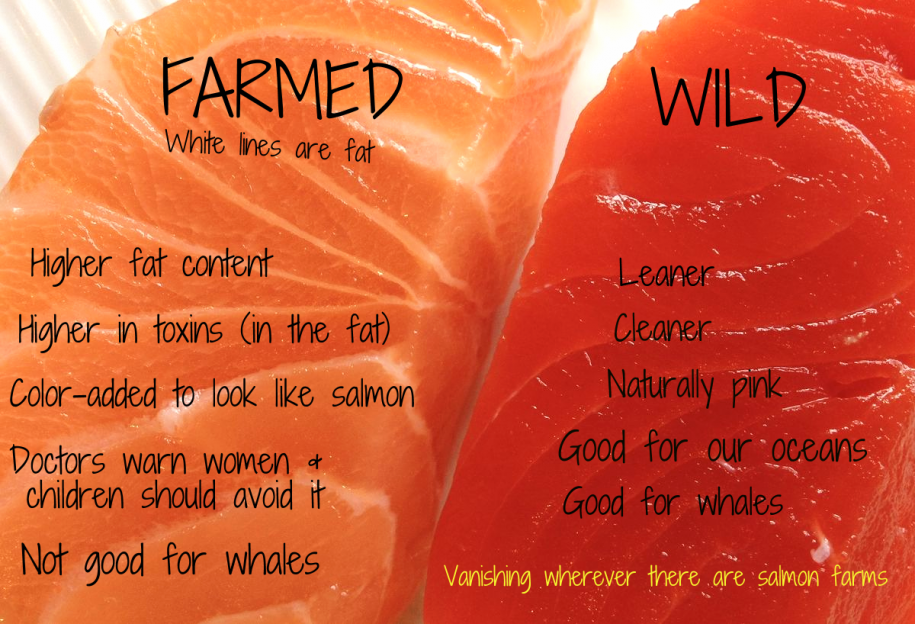I love salmon. It would have to be hands down my favourite fish and until very recently I was eating it at least once a week. What a great source of omega 3 fatty acids right? WRONG. I’m sure a lot of you are already aware that a lot of the fish that we eat is farmed. It has to be farmed, it makes sense to be farmed, it is not sustainable for us to feed the world’s population on wild-caught seafood and as it is, predictions are our oceans may be without fish by 2050!
But what a lot of people don’t know is that farmed fish are very different from their wild counterparts. Farmed fish live in small and confined spaces where the risk of parasite infection and disease is much higher, resulting in the need for these fish to be given preventative antibiotics. In the wild, salmon feed on krill which gives them their beautiful pink colour. In a farm, they are fed pellets made with unnatural substances including synthetic materials to give their skin a pink colour. Because of this, the farmed variety is usually a lot fattier than the wild variety. Unfortunately, these conditions increase the amount of omega 6 fatty acids in the fish rather than the much-coveted omega 3 fatty acids. See the chart below that illustrates this. We typically consume higher amounts of omega 6 to omega 3 and this can result in more inflammation in the body.
So what does this all mean for us and why am I dedicating this blog to the topic? Well, it’s pretty safe to say that 100% of Australian salmon is farmed which means when we choose to eat this type of fish we are exposing ourselves to a higher amount of inflammatory fats and toxins. Not really the ideal nutrients we are looking for when choosing this rich and delicious seafood.
So what fish should we be eating? That is a challenging question and one I am still researching and contemplating. My initial recommendation is to choose local wild-caught seafood but obviously, this has some sustainability issues. At this stage, I’m leaning towards wild-caught and local fish that are abundant in stock such as whiting. If you want to research this further, this website has great information and at the moment is my guide as I try to determine how to continue to eat seafood for its many health benefits.


5 Comments
julia williams
Will eating once per week still bad?
Sarah Hopkins
Hey Julia, personally I don’t eat farmed salmon at all but at the end of the day it’s personal choice. There are a lot of other oily fish out there that are better choices and often they’re cheaper too.
Rayo
I just want a reason to tell my mom why I shouldn’t eat fish for dinner
Rayo
I just want a reason to be able to tell my mom why I shouldn’t have fish for dinner
D. Monroe
I ate wild salmon until recently, when I bought some wild-caught sockeye and, while cooking it, found multiple nematodes – that is, worms – in the flesh. I’m not one to waste food, but I was so disgusted that I threw it out. Upon looking into it, that’s incredibly common in wild salmon, cod, etc. Tuna appears to be safe. But that’s a “No can do, Chief” for me. Ick.